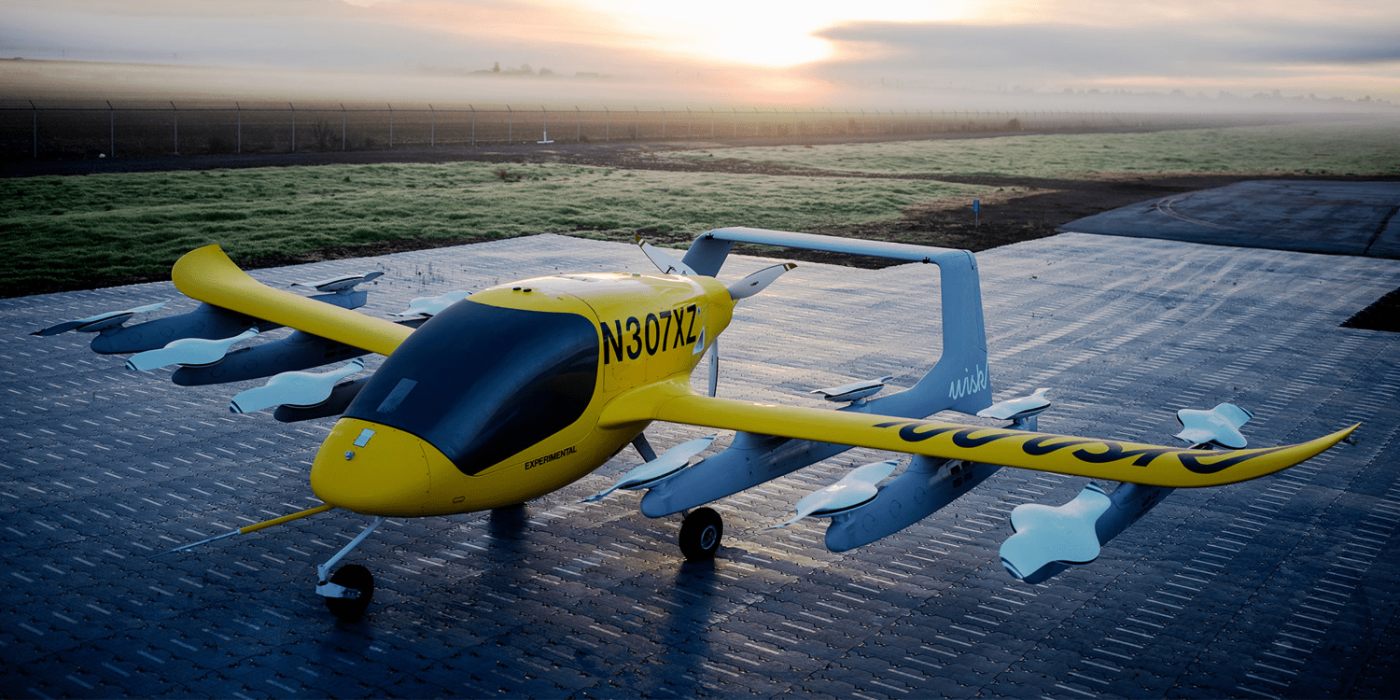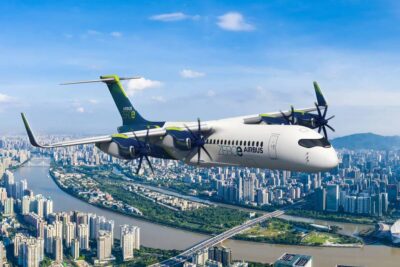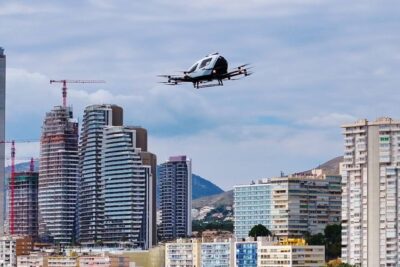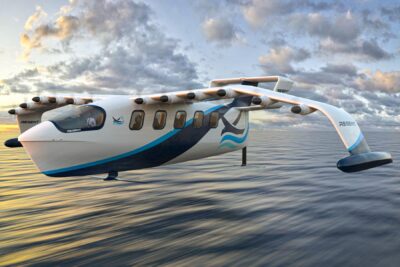Wisk unveils autonomous four-seater eVTOL
Boeing-backed air-taxi company Wisk Aero has unveiled the Gen-6, an autonomous four-seater aircraft. Wisk says the eVTOL (electric Vertical Take-Off and Landing aircraft) is market-ready and can now apply for type certification by the FAA, the US Department of Transport Federal Aviation Authority.
The autonomous aircraft carries four passengers without a pilot on board while being monitored remotely by ground staff. Wisk says that the aircraft leverages the same technology that carries out more than 93% of automated pilot functions currently used on commercial flights.
The Gen-6 autonomous eVTOL can reach altitudes of 2,500 to 4,000 feet (609 – 1,219 metres) and has a nearly 50-foot wingspan. The aircraft is powered by twelve electric rotors. Six of these are rigid and always operate vertically, positioned at the rear of the aircraft’s wings. The other six rotors are positioned at the front of the aircraft and can be tilted. These are vertical during take-off and landing but swing to a horizontal position in flight.
According to Wisk, the Gen-6 aircraft has a cruising speed of up to 120 knots or the equivalent of 222 km/h (138 mph). The eVTOL is made to carry four passengers comfortably with what the company says is “ample storage space” for luggage and personal carry-on items. Wisk says its latest aircraft has a range of around 144 kilometres with reserves (90 miles).
While the concept of flying taxis may seem like an expensive affair, Wisk says that the aircraft is designed with a target price of $3 per passenger per mile, which currently translates to three euros per 4.83 kilometres.
Generation 6 is the further development of the aircraft named Cora that was revealed in 2018. Wisk says that its 4th and 5th Generation aircraft were used to test new software, autonomy architectures, sensors, hardware and other components. In 2020, the New Zealand government enabled Wisk to test its autonomous passenger aircraft around the area of Canterbury. Wisk says that these earlier generations of its autonomous flying taxi allowed the company to begin the development of the broader ecosystem, such as airspace integration, infrastructure, and relevant aircraft service providers.
The type of certificate that Wisk Aero has now applied for with the FAA is one of three certifications that an airline must obtain before launching a commercial service. This verifies that the aircraft meets all FAA design and safety standards. Only then is production certification possible, and without the pending certification as an air carrier, the aircraft cannot be used.
Earlier this year, the start-up Joby Aviation completed its first system tests and compliance checks by the Federal Aviation Administration and received the approvals. While the company is working on similar air-taxi concept, the two companies have a very large difference: Joby’s aircraft is a piloted five-seat eVTOL aircraft that can carry four passengers at what the company says are speeds of up to 200 mph (320 km/h). Joby says it is targeting the launch of its aerial ridesharing service in 2024.
Since the Gen-6 from Wisk Aero is autonomous, it represents the first-ever candidate for FAA certification of this kind of passenger-carrying eVTOL air taxi. In revealing this latest aircraft, which the company says is market-ready, no dates were given as to when the aircraft might be put into commercial services. The fact that this aircraft is autonomous may well give it a regulatory special case for some operations – since the vehicle could then potentially be used for emergency evacuation operations that would otherwise be too dangerous for pilots, such as during wildfires.
Wisk Aero was founded by Boeing and Kitty Hawk. In January 2022, Boeing further invested $450 million in Wisk Aero. Last month Kitty Hawk, backed by Google co-founder Larry Page, announced that it would cease operations, emphasising that this should have no effect on Wisk Aero. Here, it was rumoured that the backers of Kittyhawk (i.e. Larry Page) are fully endorsing the 4-seat Wisk Aero Cora business model rather than the more-limited 1-seat Heaviside product.





0 Comments